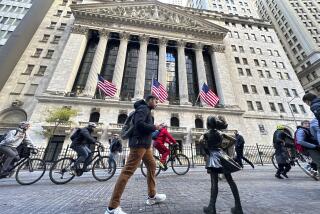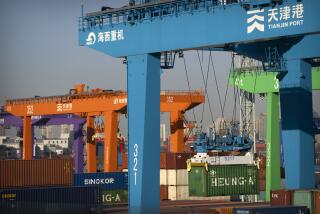Oils heads for worst quarter since 2008
Oil fell on the way to the largest quarterly drop since the 2008 financial crisis as signs of slowing growth in China, the U.S. and Germany heightened concern that fuel demand will weaken.
Futures dropped as much as 2.6% after China’s purchasing managers’ index fell for a third month while German retail sales declined in August and U.S. consumer spending slowed. Prices rebounded from the day’s lows on a report that U.S. business activity unexpectedly accelerated in September.
“The Chinese PMI and the German retail sales numbers are what started the ball rolling down and then personal income pushed it further,” said Gene McGillian, an analyst and broker at Tradition Energy in Stamford, Connecticut. “We’ve had some pretty disappointing economic data.”
Crude for November delivery fell $1.03, or 1.3%, to $81.11 a barrel at 12:55 p.m. on the New York Mercantile Exchange. Prices have tumbled 15% since the end of June, the biggest quarterly decline since the end of 2008. Futures are down 8.7% this month. They have gained 1.6% this week.
Brent oil for November settlement fell 9 cents to $103.86 a barrel on the ICE Futures Europe exchange in London. Prices are down 7.7% this quarter, 9.6% this month and 11 cents this week.
A gauge of manufacturing in China, the world’s fastest- growing oil consumer, shrank for a third month, the longest contraction since 2009. The reading of 49.9 for the September purchasing managers’ index, released by HSBC Holdings Plc and Markit Economics today, was unchanged from August and compared with a preliminary 49.4 figure published last week.
China is the world’s second-biggest oil user, trailing only the U.S.
Chinese Slowdown Risk
Consumer spending in the U.S. slowed in August as incomes unexpectedly dropped for the first time in almost two years, Commerce Department figures showed today in Washington. Purchases rose 0.2% after a 0.7% increase the prior month.
“There is a risk of slowdown in Chinese demand,” said Eugen Weinberg, head of commodities research at Commerzbank AG in Frankfurt, who forecasts Brent prices at $100 in the next quarter. “The risks to the forecast in the fourth quarter and for 2012 as a whole are to the downside.”
German retail sales, adjusted for inflation and seasonal swings, slumped 2.9% from July, when they rose 0.3%, the Federal Statistics Office in Wiesbaden said today. Economists had forecast a 0.5% decline, according to the median of 18 estimates in a Bloomberg survey.
“There are increasing signs that we are tipping into recession and that’s playing into a weaker demand outlook,” said John Kilduff, a partner at Again Capital LLC, a New York- based hedge fund that focuses on energy.
Total products supplied averaged over four weeks, a measure of fuel demand, fell 0.6% in the period ended Sept. 23 to 19 million barrels a day, the lowest level since July, the Energy Department reported this week.
Oil pared losses after the Institute for Supply Management- Chicago Inc. said today that its U.S. business barometer rose to 60.4 this month from 56.5 in August. A level of 50 is the dividing line between expansion and contraction. Economists forecast the gauge would drop to 55, according to the median estimate in a Bloomberg News survey.
Oil may fall next week on concern that Europe’s economy is showing signs of a slowdown as governments struggle to contain their fiscal crisis and avert a Greek default, according to a Bloomberg News survey. Thirteen of 28 analysts, or 46%, forecast oil will decline through Oct. 7, while eight respondents, or 29%, predicted prices will increase.
“The underlying message is that the economy will remain weak in the long term,” said Michael Lynch, president of Strategic Energy & Economic Research in Winchester, Massachusetts. “In the short term, the market is going to react on every headline out of Europe on the debt crisis and every bit of economic data here in the U.S.”
Greek Prime Minister George Papandreou met French President Nicolas Sarkozy today in Paris after seeing European Union President Herman Van Rompuy in Warsaw. Papandreou said after the talks that Greece was making sacrifices to uphold its commitments and thanked Sarkozy for his support.
European leaders next week will discuss a permanent rescue fund after German lawmakers approved an expansion of the temporary European Financial Stability Facility.
The euro tumbled 1.1% to $1.345 at 12:59 p.m. in New York. A weaker euro and stronger dollar curbs the appeal of commodities as an alternative investment. The European currency has tumbled 7.3% since the end of June, poised for the worst quarter since the period ended in June 2010.
Oil volume in electronic trading on the Nymex was 357,505 contracts as of 1 p.m. in New York. Volume totaled 591,868 contracts yesterday, 9.8% below the average of the past three months. Open interest was 1.4 million contracts.






